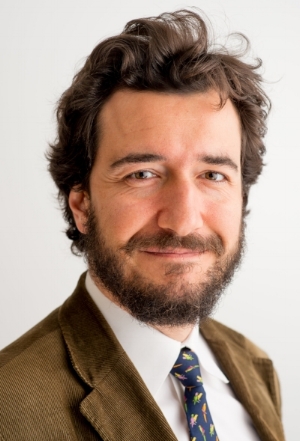
Dr. Giulio Pugliese
Biographical Sketch:
I specialise in the politics, both domestic and international, of the Asia-Pacific with a focus on Japan, China and the United States. I have presented at a variety of venues, and published articles and contributing chapters concerning academic, policy-oriented and commercial themes in Italy, the U.S. and Japan. My research engages with International Relations theory –especially the noble tradition of Realism– and addresses the wider implications of China’s economic and political rise by examining Japan’s China policy. I also give considerable attention to Japanese foreign policy-making and US-Japan-China triangular relations, the best window to complex economic, political, and security dynamics in the Asia-Pacific region.
I earned a Laurea (B.A.) in Political Science and East Asian Studies at the University of Naples, “L’Orientale” (cum laude), an M.A. in International Economics and International Relations (concentrating on East Asian Studies) at the Paul H. Nitze School of Advanced International Studies, Johns Hopkins University, graduating with Honors and passing the final exam with Distinction. I have completed my Ph.D. work at the University of Cambridge after extensive fieldwork in Tokyo, where I was based at the National Graduate Research Institute for Policy Studies (GRIPS) under the mentorship of Prof. Kitaoka Shin’ichi. Prior to my appointment at King’s College London, I worked as an Assistant Professor (Wissenschaftlicher Mitarbeiter) at Heidelberg University’s Institute of Chinese Studies. I am a regular contributor to and member of the editorial board of Asia Maior, Italy’s leading academic publication on current Asian affairs.
I have written extensively on Abe’s foreign policy and on the thinking and policies of his diplomatic team, including National Security Advisor Yachi Shotaro (the first academic article in both the English and Japanese literature on the subject). My most recent publication is a co-authored book –Sino-Japanese Power Politics: Might, Money and Minds; Palgrave MacMillan: 2017. It will soon be available in Korean.
On my participation in the 2012 PhD Workshop in Newcastle:
1) The EAJS PhD workshop allowed me to present my research to Prof. Caroline Rose, a renowned scholar working on Japan-China relations. I have benefited greatly from her perceptive feedback and, on top of that, I was able to get her to learn about my research, thus allowing me to get involved in a research network concerned with the study of Japan-China relations.
2) These workshops will allow junior researchers to gain feedback from different voices, including other early career researchers, and network extensively. I have met and I am still in touch with a range of Europe-based Japan experts thanks to the workshop.
